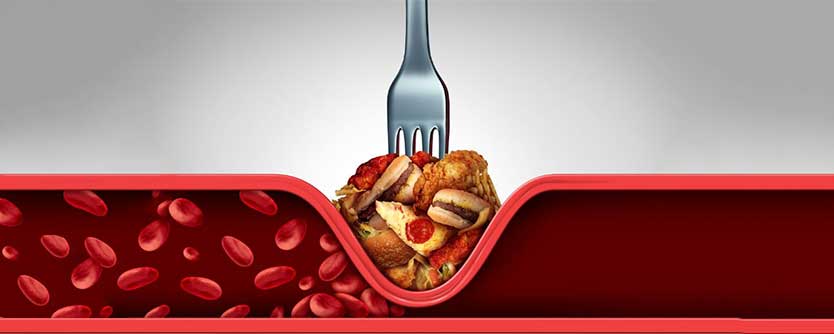Cholesterol is a waxy, fat like substance, present in all cells of the body. It is required to synthesize hormones,
[the_ad id=”6115″]vitamins and bile juices that help in digestion. But too much cholesterol can block the blood flow and increases the risk of heart attack and stroke.
There are two main types of cholesterol present in our body.
1. High density lipoprotein (HDL) referred as “good” cholesterol.
2. Low density lipoprotein (LDL) and Triglycerides also called as “bad” cholesterol.
Factors affecting cholesterol:
1. Unhealthy diet: Consuming food rich in saturated and trans fat increases the cholesterol levels.
A. Saturated Fats
· Dairy products (whole milk, cream, ice cream, cheese)
· Tropical oils (coconut, palm)
B. Trans fats
· Hydrogenated fats (margarines, peanut butter, non-dairy creamers, and whipped toppings)
· Processed snacks (potato chips, cookies, cakes, icings)
C. Refined carbohydrates
· Sugars (table sugar, powdered white sugar, corn syrup)
· Instant grains (instant oatmeal and rice)
· Flour (wheat, rice, corn)
D. Dietary cholesterol
· Red meat
· Shellfish and poultry skin
2. Obesity: It has a direct association with increased levels of cholesterol. Lack of physical activity, over-eating and excess fat accumulation in body results in obesity thus, increases the risk of cardiovascular diseases.
3. Cigarette smoking: Smoking injures the linings of blood vessel and result in the coronary artery diseases in people with high cholesterol levels. It also lowers the level of good cholesterol in the blood.
4. Excessive alcohol consumption: Drinking too much alcoholic drinks can increase triglycerides levels in blood.
5. Irregular health check-up: There are usually no signs and symptoms for high cholesterol levels therefore regular health check-ups should be done.
Takeaway: The key factor to understand is that the most powerful tool comes from grocery store and not from pharmacy, so choose your tools wisely….!
Source:

